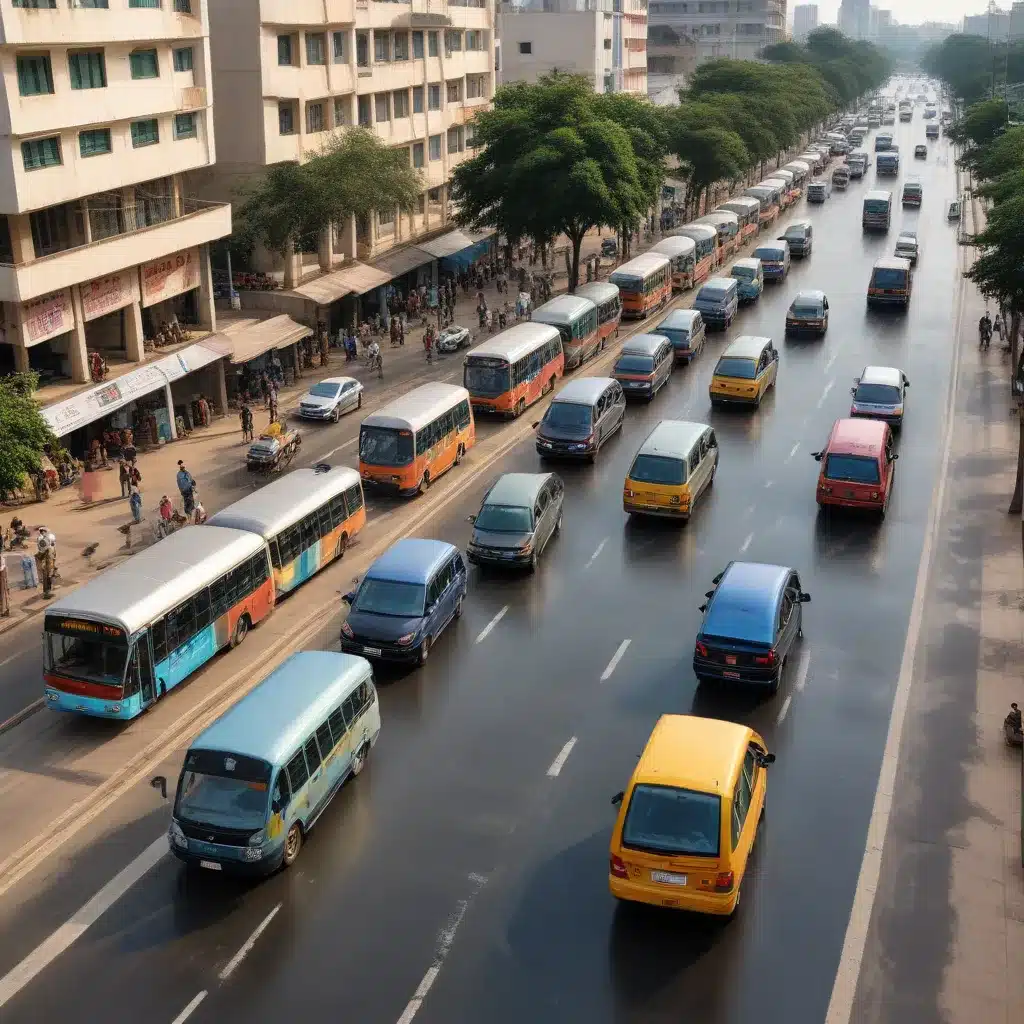
Driving Sustainable Development Through Community Engagement and Policy Innovation
Hyderabad, the vibrant capital of India’s Telangana state, has long grappled with the dual challenges of providing accessible, eco-friendly transportation options and ensuring reliable access to clean water for its rapidly growing population. However, the city’s forward-thinking urban planners and engaged citizens have come together to devise innovative solutions that address these interconnected issues, paving the way for a more sustainable and livable future.
Pioneering Multimodal Mobility Solutions
As Hyderabad’s population has surged, the city has recognized the urgent need to reduce its reliance on private vehicles and promote more sustainable modes of transportation. Led by the Hyderabad Metropolitan Development Authority (HMDA), a collaborative effort has emerged to integrate various modes of public transit, including the state-of-the-art Hyderabad Metro Rail, extensive bus networks, and a growing network of pedestrian-friendly walkways and bike lanes.
“The integration of our public transportation systems has been a game-changer,” explains Thurram Vijay Kumar, a Project Coordinator for Water Management at The Rainwater Project in Hyderabad. “By making it easier for residents to move around the city using a combination of modes, we’ve seen a significant reduction in private vehicle usage and the associated environmental impacts.”
Complementing these multimodal initiatives, Hyderabad has also invested in smart mobility technologies, such as real-time passenger information systems and integrated ticketing platforms. These innovations have improved the overall efficiency and accessibility of the city’s transportation network, encouraging more residents to leave their cars at home and embrace sustainable commuting options.
Leveraging Water-Sensitive Urban Design
In parallel with its mobility transformation, Hyderabad has also prioritized the sustainable management of its water resources, recognizing the critical interconnection between transportation infrastructure and water infrastructure.
“Water-sensitive urban design has been a key focus for us,” says Vijay Kumar. “By incorporating natural drainage systems, permeable surfaces, and rainwater harvesting features into our transportation projects, we’re able to enhance groundwater recharge, mitigate urban flooding, and ensure more efficient water utilization.”
One such example is the integration of bioswales and detention ponds along major roads and public spaces. These landscape elements not only manage stormwater runoff but also filter pollutants, improving the quality of water entering the city’s aquifers and surface water bodies.
Furthermore, Hyderabad has made significant strides in repurposing treated wastewater for non-potable applications, such as road cleaning, landscaping, and industrial processes. This approach not only reduces the strain on the city’s freshwater supplies but also promotes a circular economy, where resources are continuously recycled and reused.
Empowering Community Ownership and Advocacy
Hyderabad’s transition towards water-wise and sustainable urban mobility has been driven not only by top-down policy initiatives but also by a groundswell of community engagement and advocacy.
“We’ve seen a remarkable level of buy-in and participation from local residents,” notes Vijay Kumar. “Through awareness campaigns, community workshops, and citizen science initiatives, we’ve been able to empower people to take an active role in shaping the future of their city.”
One such initiative is the “Adopt a Lake” program, where community groups and local businesses take responsibility for the maintenance and conservation of urban water bodies. By fostering a sense of ownership and stewardship, the program has not only improved the ecological health of these waterbodies but also strengthened the social fabric of Hyderabad’s neighborhoods.
Similarly, the city’s active network of cycling enthusiasts and pedestrian advocacy groups have played a crucial role in championing the development of safe, accessible, and interconnected active mobility infrastructure. These grassroots efforts have helped to ensure that the needs and perspectives of all Hyderabad’s residents are taken into account in the planning and implementation of sustainable transportation solutions.
Scaling Up Lessons Learned
Hyderabad’s journey towards water-wise urban mobility offers valuable lessons and insights for cities around the world. By seamlessly integrating sustainable transportation and water management strategies, the city has demonstrated the power of holistic, systems-based approaches to urban development.
As Vijay Kumar emphasizes, “The key to our success has been the ability to connect the dots between different sectors and stakeholders. By fostering cross-cutting collaboration and a shared vision for a more livable and resilient city, we’ve been able to unlock innovative solutions that benefit both people and the planet.”
Indeed, Hyderabad’s model has already inspired other Indian cities, such as Pune and Bengaluru, to embark on similar initiatives. Furthermore, the city’s experience has garnered international attention, with urban planners and policymakers from around the world seeking to learn from Hyderabad’s pioneering approach.
As the world continues to grapple with the complex challenges of sustainable development, Hyderabad’s story stands as a powerful testament to the transformative potential of community-driven, water-wise urban mobility. By seamlessly integrating transportation and water management, the city has not only improved the quality of life for its residents but has also paved the way for a more equitable and environmentally responsible future.
Conclusion: Towards a Water-Resilient, Livable Hyderabad
Hyderabad’s holistic approach to urban mobility and water management has been a remarkable journey, marked by innovative policies, community-led initiatives, and a steadfast commitment to sustainable development. By tackling the interrelated issues of transportation and water, the city has demonstrated the power of cross-sectoral collaboration and integrated solutions to address complex urban challenges.
As Hyderabad continues to evolve and grow, its water-wise mobility model will undoubtedly serve as a beacon of inspiration for cities around the world, showcasing the transformative potential of citizen engagement, policy innovation, and the relentless pursuit of a more livable, equitable, and environmentally resilient future.

